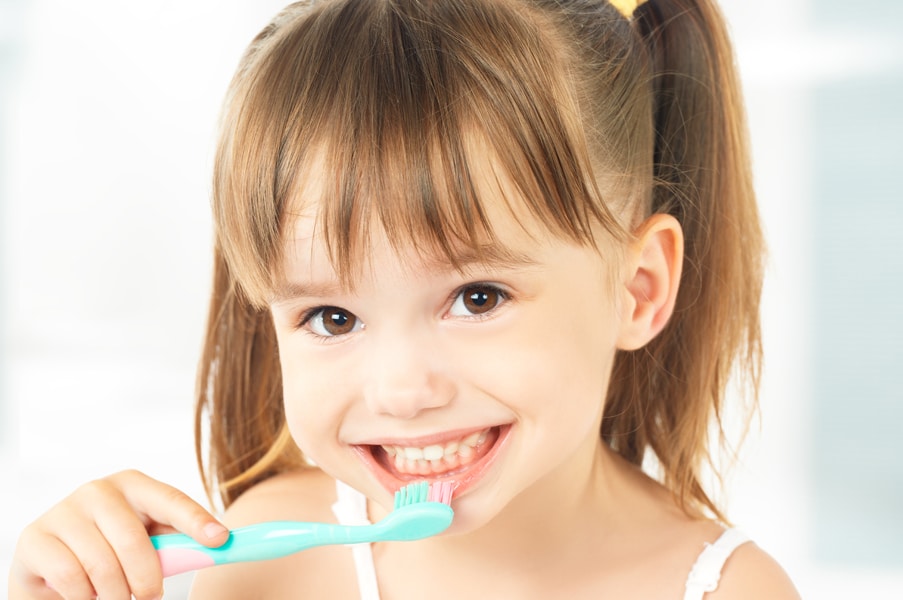
Baby Teeth Care: A Comprehensive Guide for Parents
Baby teeth, also known as primary teeth or milk teeth, play a crucial role in a child’s overall health and development. They serve as placeholders for permanent teeth, aid in speech development, and contribute to proper jaw growth. Neglecting baby teeth can lead to a range of dental problems that can affect both the primary and permanent teeth.
Importance of Baby Teeth
- Placeholders for Permanent Teeth: Baby teeth maintain the space in the jaw for the eruption of permanent teeth. Premature loss of baby teeth can lead to crowding or misalignment of permanent teeth.
- Speech Development: Baby teeth help children form sounds and words correctly.
- Jaw Growth: The chewing action associated with baby teeth stimulates jaw development and strengthens the muscles involved in chewing.
- Nutrition: Baby teeth allow children to chew and eat a variety of foods, providing essential nutrients for growth and development.
Common Dental Problems in Baby Teeth
- Tooth Decay: Baby teeth are more susceptible to decay due to their thinner enamel and higher sugar intake.
- Early Childhood Caries (ECC): A severe form of tooth decay that can affect infants and toddlers.
- Trauma: Baby teeth can be easily damaged due to falls or accidents.
- Gum Disease: Gingivitis, an inflammation of the gums, can occur in children with poor oral hygiene.
Baby Teeth Care Routine
- Start Early: Begin cleaning your baby’s mouth even before teeth erupt. Use a soft, damp cloth to wipe their gums after feedings.
- Brush Regularly: Once teeth appear, start brushing them twice a day with a soft-bristled toothbrush and fluoride toothpaste.
- Use a Pea-Sized Amount of Toothpaste: For children under 3 years old, use a pea-sized amount of fluoride toothpaste.
- Supervise Brushing: Supervise your child’s brushing until they are old enough to do it independently.
- Floss Daily: Flossing helps remove plaque and food particles from between teeth. Start flossing your child’s teeth once they have two teeth that touch.
- Limit Sugary Foods and Drinks: Sugary foods and drinks contribute to tooth decay. Limit your child’s intake of these items and offer healthy alternatives such as fruits, vegetables, and water.
- Avoid Bedtime Bottles: Giving your child a bottle of milk or juice before bed can lead to tooth decay.
- Regular Dental Checkups: Take your child for regular dental checkups starting at around 6 months of age.
Signs of Dental Problems
- White or Brown Spots on Teeth: These may indicate early signs of tooth decay.
- Pain or Sensitivity: Your child may experience pain or sensitivity when eating or drinking.
- Swollen or Bleeding Gums: These may be signs of gum disease.
- Loose or Chipped Teeth: Trauma or decay can cause teeth to become loose or chipped.
- Bad Breath: Persistent bad breath can be a sign of dental problems.
Treatment Options for Dental Problems in Baby Teeth
- Fluoride Treatments: Fluoride helps strengthen teeth and prevent decay.
- Fillings: Fillings are used to repair cavities and restore the tooth’s structure.
- Crowns: Crowns are used to cover and protect severely damaged teeth.
- Extractions: In some cases, it may be necessary to extract a baby tooth if it is severely damaged or infected.
Prevention is Key
The best way to protect your child’s baby teeth is through prevention. By following these simple steps, you can help ensure that your child’s teeth remain healthy and strong:
- Establish Good Oral Hygiene Habits: Teach your child the importance of brushing, flossing, and limiting sugary foods and drinks.
- Regular Dental Checkups: Take your child for regular dental checkups to detect and treat any dental problems early on.
- Sealants: Sealants are thin, protective coatings applied to the chewing surfaces of teeth to prevent decay.
- Mouthguards: Mouthguards can protect your child’s teeth from trauma during sports or other activities.
Conclusion
Baby teeth play a vital role in a child’s overall health and development. By following a comprehensive baby teeth care routine, parents can help protect their child’s teeth from dental problems and ensure a healthy and beautiful smile for years to come. Remember, prevention is key, and early intervention is essential for maintaining the health of both baby teeth and permanent teeth.
